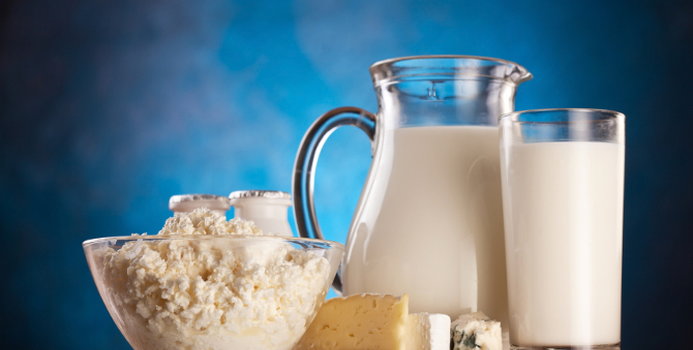Dairy has become quite a controversial topic. Most of us were taught as children that dairy is an essential part of a healthy diet and is necessary for building strong bones. We've all seen the advertisements with celebrities and posters from the Dairy Council on the walls of our schools. Despite the clever marketing, when you take a look at the scientific research, you will see that dairy is not the wonderful health food that we've been led to believe it is. Unless of course, you are a baby cow.
The main reason why dietitians, doctors and educators promote dairy so heavily is because this is what they themselves have been taught. Nutrition students are only exposed to the American Dietetic Association's (ADA) position on the topic and did you know that the ADA is partners with the Dairy Council? Interesting. There can be a very fine line between dietary advice and marketing to promote a business interested only in profit.
The main claim to fame of dairy products is their high calcium content. Our bones do need calcium, however bones are not made up of calcium alone. Other essential nutrients involved in skeletal health include zinc, copper, manganese, magnesium, boron, vitamin C, vitamin A, vitamin K, the B vitamins, potassium and many others. Components important for bone health and the prevention of osteoporosis consist of getting enough regular exercise, getting adequate vitamin D, avoiding the overconsumption of caffeine, avoiding smoking and avoiding too much protein. So, calcium does play a part but not as large a part as the promoters of milk would like us to believe.
A study in the American Journal of Clinical Nutrition reviewed the outcomes from a number of studies in order to determine whether scientific evidence supports the recommendation that dairy foods be consumed for improved bone health. They concluded that the body of scientific evidence appears inadequate to support a recommendation for daily intake of dairy foods to promote bone health.
So, there you have the science (or lack thereof). Next is to look at milk from a biological standpoint. All mammals (humans, cows, gorillas, etc) produce milk after they give birth in order to feed their offspring. The milk of each species is specifically intended by nature to meet the nutrition needs of that animal. Cow milk is designed for calves just as dog milk is designed for puppies and human milk is designed for human babies. After a few years, humans stop producing the enzyme lactase which helps digest the sugar lactose in breast milk. The fact that the majority of humans (about 75%) are lactose intolerant should be another clue that we may not be designed to drink the mammary secretions of other animals.
If you do choose to consume dairy products, it is highly recommended that you opt for organic versions. Organic dairy ensures that the cows were fed organic feed, allowed access to the outdoors and not given any antibiotics or hormones.
Corinne Goff is a Registered Dietitian who is absolutely passionate about food, health, and nutrition. Corinne has a BA in Psychology from Salve Regina University and a BS in Nutrition from the University of Rhode Island. As a nutritionist, her objective is to help people reach their health goals by offering a personalized holistic approach to wellness that incorporates natural foods and lifestyle changes. She works together with her clients to develop daily improvements that they feel comfortable with and that are realistic. She believes that the focus on wholesome, nutrient-rich, real food, is the greatest possible way to become healthier, have more energy, decrease chances of chronic disease, and feel your best.



